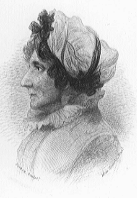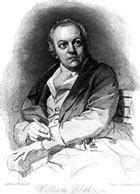A Quote by Joseph Addison
I am very much concerned when I see young gentlemen of fortune and quality so wholly set upon pleasures and diversions, that they neglect all those improvements in wisdom and knowledge which may make them easy to themselves and useful to the world.
Related Quotes
Young gentlemen, who are to display their knowledge to the world, should have every motive of emulation, should be formed into regular classes, should read and dispute together, should have all the honors, and, if one may say so, the pomp of learning set before them, to call up their ardor. It is their business, and they should apply to it as such.
One may have broad or narrow talents, but only education renders them useful. Schools set up to train people will develop the intelligence of those who have it and end the stupidity of those who do not, providing a specialty to those who have narrow talent and broad knowledge to those with all-around ability.
I hold all knowledge that is concerned with things that actually exist - all that is commonly called Science - to be of very slight value compared to the knowledge which, like philosophy and mathematics, is concerned with ideal and eternal objects, and is freed from this miserable world which God has made.
?"Intellect is the knowledge obtained by experience of names and forms; wisdom is the knowledge which manifests only from the inner being; to acquire intellect one must delve into studies, but to obtain wisdom, nothing but the flow of divine mercy is needed; it is as natural as the instinct of swimming to the fish, or of flying to the bird. Intellect is the sight which enables one to see through the external world, but the light of wisdom enables one to see through the external into the internal world.
There are many times when I have to remind myself that people who harm others are coming from a place of profound disconnection. It is not easy to recognize the pain such a person is in, especially because they may not be conscious of it themselves. They may present themselves to the world as just fine. If you believe human beings have a potential for deep connection, wisdom and love; the limitation in those peoples' lives becomes clearer.
The notion that "applied" knowledge is somehow less worthy than "pure" knowledge, was natural to a society in which all useful work was performed by slaves and serfs, and in which industry was controlled by the models set by custom rather than by intelligence. Science, or the highest knowing, was then identified with pure theorizing, apart from all application in the uses of life; and knowledge relating to useful arts suffered the stigma attaching to the classes who engaged in them.
We ought never to be afraid to repeat an ancient truth, when we feel that we can make it more striking by a neater turn, or bring it alongside of another truth, which may make it clearer, and thereby accumulate evidence. It belongs to the inventive faculty to see clearly the relative state of things, and to be able to place them in connection; but the discoveries of ages gone by belong less to their first authors than to those who make them practically useful to the world.
If all females were not only well educated themselves but were prepared to communicate in an easy manner their stores of knowledge to others; if they not only knew how to regulate their own minds, tempers, and habits but how to effect improvements in those around them, the face of society would be speedily changed.
Rhetoric is useful because the true and the just are naturally superior to their opposites, so that, if decisions are improperly made, they must owe their defeat to their own advocates; which is reprehensible. Further, in dealing with certain persons, even if we possessed the most accurate scientific knowledge, we should not find it easy to persuade them by the employment of such knowledge. For scientific discourse is concerned with instruction, but in the case of such persons instruction is impossible.
That discipline which corrects the eagerness of worldly passions, which fortifies the heart with virtuous principles, which enlightens the mind with useful knowledge, and furnishes to it matter of enjoyment from within itself, is of more consequence to real felicity than all the provisions which we can make of the goods of fortune.






































